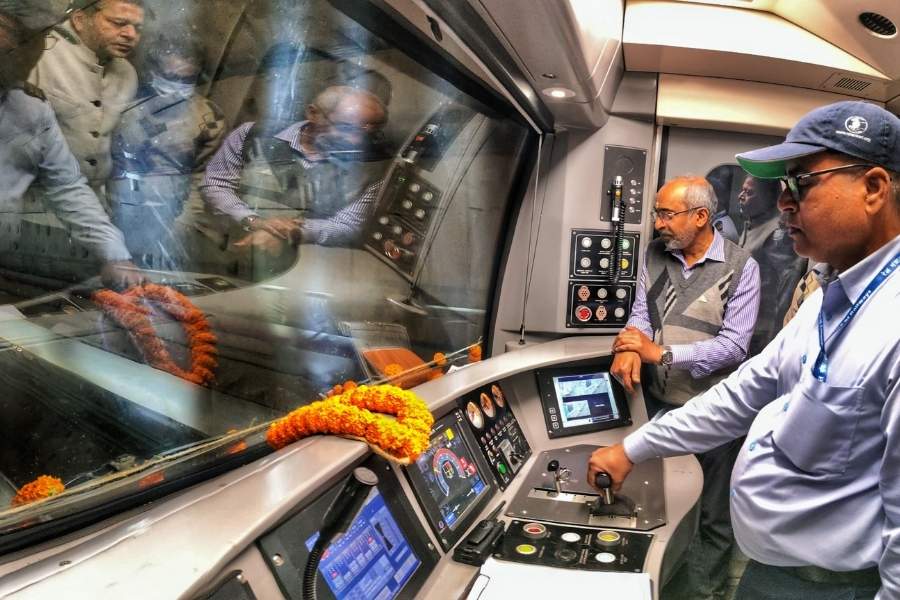 Wednesday, 22 January 2025
Wednesday, 22 January 2025
 Wednesday, 22 January 2025
Wednesday, 22 January 2025
Innovator and climate activist Sonam Wangchuk has embarked on a 1,000-kilometre foot march from Ladakh to New Delhi, demanding greater autonomy for the region under the Constitution of India.
The march, which began on 1 September 2024, aims to pressure the central government to include Ladakh in the Sixth Schedule, granting it special protections and self-governance rights.
Wangchuk, accompanied by 75 passionate volunteers, is fearlessly trekking across the world’s tallest mountain passes, confronting severe weather conditions to draw attention to Ladakh’s exceptional hurdles.
“We’re sending an urgent SOS to world leaders and citizens,” Wangchuk said in a video message from Taglangla Pass, at an altitude of 17,482 feet.
The activist emphasised the rapid melting of Himalayan glaciers and warned of the impending climate refugee disaster if action is not taken.
After the abrogation of Article 370 in 2019, Ladakh became a separate union territory “without legislature”. The Buddhist-dominated Leh district had long demanded union territory status, citing alleged neglect by the erstwhile Jammu and Kashmir government.
Many in Ladakh want inclusion in the Sixth Schedule of the Constitution, unhappy with how bureaucrats administer the region now.
This Sixth Schedule allows the formation of Autonomous District Councils (ADCs) with legislative, judicial, and administrative autonomy within a state. These councils would have the power to make laws on specific matters with the governor’s assent, establish village councils or courts for dispute resolution, and manage local facilities and services, including education and healthcare. They would also have authority to impose taxes and regulate certain activities.
The Leh Apex Body (LAB) and Kargil Democratic Alliance (KDA) are spearheading a four-point agenda:
1. Statehood for Ladakh
2. Constitutional protections under the Sixth Schedule
3. Establishment of a Public Service Commission
4. Separate Lok Sabha seats for Leh and Kargil
In September 2019, the National Commission for Scheduled Tribes (NCST) wrote a recommendation to Union home minister Amit Shah and tribal affairs minister Arjun Munda, suggesting that Ladakh should be declared a tribal area under the Sixth Schedule. Munda had promised to do “whatever is required from a constitutional perspective to protect them”.
But the progress has been slow. In April 2024, Union home minister Amit Shah indicated Sixth Schedule status or statehood for Ladakh was unlikely.
Wangchuk also stressed on the urgency of climate action, revealing a “climate clock” showing the world less than five years before irreversible damage occurs. He criticised India and China’s carbon neutrality targets as inadequate, urging more ambitious timelines.
Ladakh’s fragile ecosystem and unique cultural identity are at the heart of the autonomy demands. The region is home to several tribal communities, including the Balti, Beda, Bot, Brokpa, Drokpa, Changpa, Garra, Mon, and Purigpa.
In March 2024, Wangchuk went on a 21-day fast to demand statehood for Ladakh and its inclusion under the Sixth Schedule, highlighting the need to protect the region from “greedy” industries.
Wangchuk has stated that statehood and constitutional protection under the Sixth Schedule would not impact defence and national security-related projects in Ladakh.
The Indian government recently announced the creation of five new districts in Ladakh: Zanskar, Drass, Sham, Nubra, and Changthang. But concerns remain about their actual decision-making powers.
In July 2024, the LAB and the KDA handed over a memorandum of demands to Prime Minister Narendra Modi during his visit to Dras for the 25th anniversary of Kargil Vijay Diwas.







